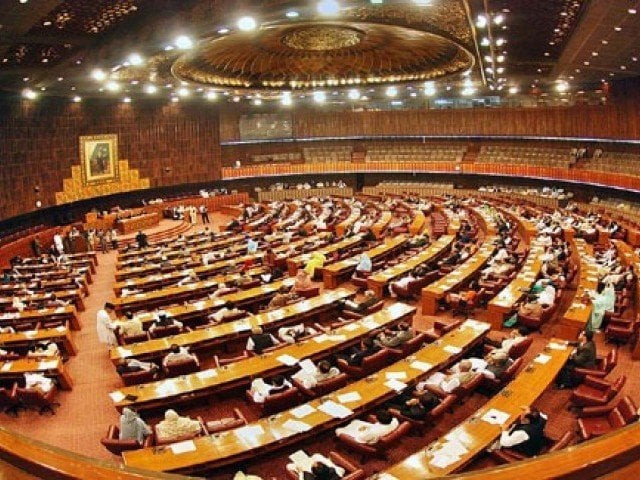Senate reluctant to give foreign visits data
After PIC issues notice, secretariat seeks a week’s time to share info with applicant

The upper house of parliament is reluctant to obey the Pakistan Information Commission’s (PIC) order for providing information about the senators including its chairman and other officials about their foreign visits in the last five years.
In response to the show-cause notice for initiating contempt proceedings on the failure to comply with the PIC’s March 31 order, the Senate staff has sought a week's time to comply with the directive.
Appellant Syed Raza Ali Shah on October 29, 2021 filed an appeal with the commission, stating that he submitted an information request to the Senate secretary on October 15, 2021 under the Right of Access to Information Act, 2017 but not received any response from the public body.
The information sought by the appellant is the list of senators including the upper house’s chairman as well as its officials, who visited foreign countries at the expense of public exchequer during the period of August 2018 to date.
During the hearing, a written response submitted to the commission by a representative of the Senate secretariat stated that the right of access to information in all matters of public importance was a fundamental right provided and recognised by the Constitution and further explained by the Right of Access to Information Act, 2017.
“However, a fine balance was required to be maintained between the right to information and right to secrecy or right to shield actions when it was in the interest of the department to do so, as both rights stemmed out of the same Act,” it added.
It was also submitted to the PIC that the information or record asked by the appellant did not in the “strict sense” fell within the ambit of the expression “public record” as envisaged by Section 6 of the Right of Access to Information Act, 2017.
“Under Article 6 of the Qanoon-e-Shahadat Order, 1984, nobody is permitted to give any evidence derived from [any] unpublished official record relating to [the] affairs of State, except with the permission of [the] head of [the] department,” it read.
“[The] head of [the] department being [the] sole judge in the instant case has turned down the request for provision of record,” it added.
The Senate secretariat further maintained that under Rule 8 of the Right of Access to Information Rules, 2019, the appellant was bound to attach a certificate with the appeal stating therein that they had not already or concurrently filed any application, complaint or suit before any other forum or court.
However, the provision of Rule 8 had not been adhered to in the instant case hence the appeal was not maintainable in its present form, the reply added.
However, the PIC rejecting the Senate secretariat’s stance upheld that the disclosure of the requested information about the foreign tours of the senators including its chairman and other officials, the number of these visits, the total budget allocated for this purpose and total budget spent on them was warranted by both the letter and the spirit of the Act, 2017.
“The commission is of the view that the disclosure of the requested information will not only strengthen the Senate secretariat as an institution but also help achieve the stated objectives of the Act enunciated in its preamble which are as to making government more accountable to [the] citizens; greater level of participation of [them] in the affairs of the government [and] reducing corruption and inefficiency, [thereby] promoting sound economic growth; good governance; and respect for human rights,” the PIC order read.
When the Senate secretariat expressed its reluctance to follow the order, the PIC issued a show-cause notice wherein it was mentioned that if the non-compliance of a decision of the information commissioner was not appealed against within 30 days, then contempt proceedings would be initiated.
The Senate secretariat later sought a week’s time to share the information with the applicant.
Muhammad Azam is the chief information commissioner and other members of the PIC are Fawad Malik and Zahid Abdullah.



















COMMENTS
Comments are moderated and generally will be posted if they are on-topic and not abusive.
For more information, please see our Comments FAQ